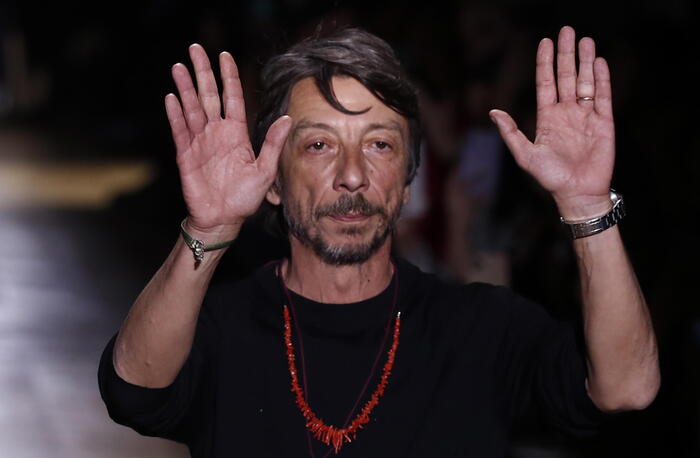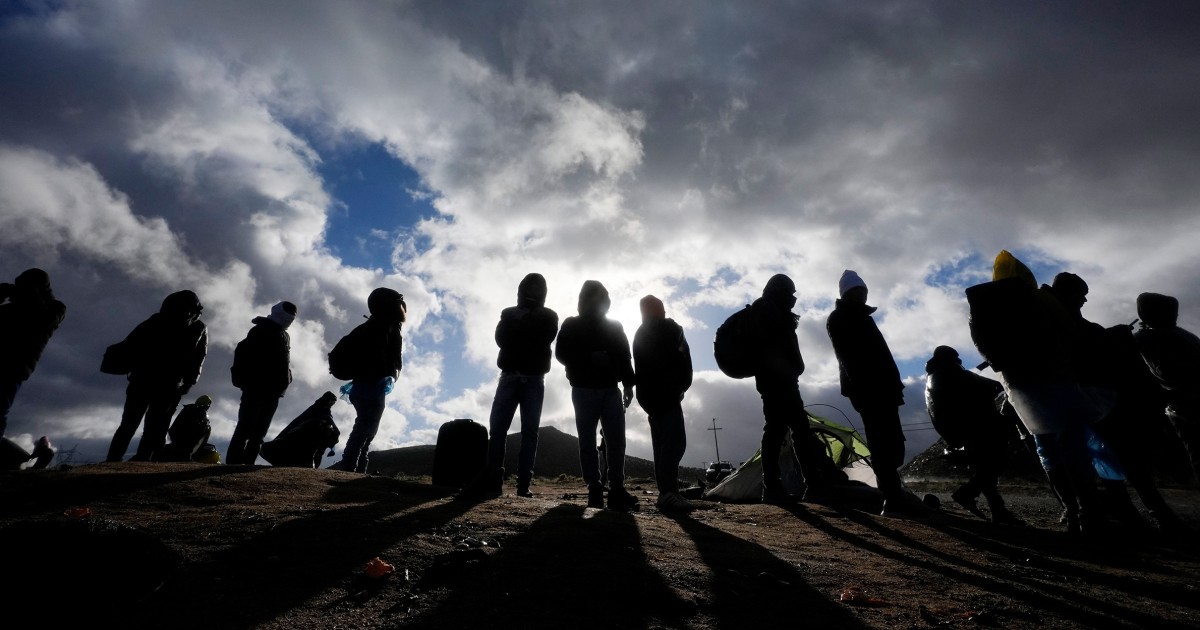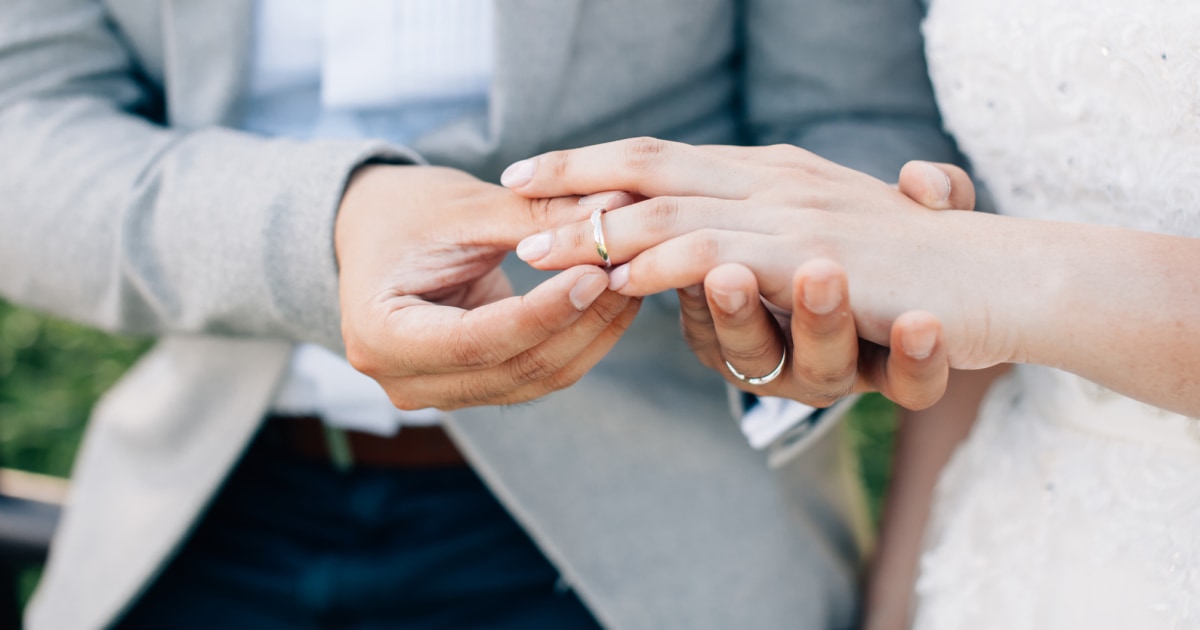Bad Bunny at the Billboard Music Awards in May 2021. (Credit: Rich Fury / Getty Images for dcp)
(CNN Spanish) -
The Puerto Rican rapper Bad Bunny and the president of El Salvador, Nayib Bukele, were some of the Latinos selected in the annual list of the 100 most influential of Time magazine in 2021.
In the list of the 100 most influential of Time this year also appear the Cuban artist Luis Manuel Otero Alcántara;
Honduran LGBTQ + rights activists Indyra Mendoza and Claudia Spellmant;
the Mexican activist for women's rights Olimpia Coral Melo Cruz;
the Brazilian businesswoman Luiza Trajano;
and the president of the Constitutional Convention of Chile, Elisa Loncon Antileo.
The list is divided into six categories: icons, pioneers, titans, artists, leaders, and innovators.
Bad bunny
Bad Bunny at the Billboard Music Awards in May 2021. (Credit: Rich Fury / Getty Images for dcp)
Rapper Bad Bunny, one of the most important Latin artists in urban music, was described as "a phenomenon" when it comes to music, "but it did not happen overnight," according to the profile that the reggaeton wrote. Colombian JBalvin.
"He is a defender of freedom of expression: if you want to wear a mini t-shirt, just go and do it. If you want to wear lipstick, do it. Do what you want to do. That freedom connects a lot with people," wrote Balvin on the profile by Bad Bunny.
advertising
Balvin - who has recorded several collaborations with him - describes him as a "true artist" who has taken "Latin culture to another level."
"I tell you, Benito," Balvin tells Bad Bunny, referring to the Puerto Rican's real name.
"You are one of the greatest artists in the history of Latin music."
Nayib bukele
Nayib Bukele, President of El Salvador. (Credit: STANLEY ESTRADA / AFP via Getty Images)
Salvadoran journalist Daniel Lizárraga, former editor of the local newspaper El Faro, describes Nayib Bukele as a president who "has not tolerated criticism or opposition," and who leads a government whose words "are unquestionable."
Lizárraga cites an investigation published by that media outlet in which the negotiations between Bukele and the gangs of El Salvador were exposed, something that Buekele rejected and called a "lie" through a tweet.
For Bukele, "the government's words are unquestionable, and whoever says otherwise is first burned on social networks and then, if he continues on his way, attended by the authorities," the journalist wrote about the president of El Salvador in Time.
In October 2020, the Inter-American Press Association (IAPA) warned about the risk to democracy and freedom of the press in El Salvador during the administration of President Nayib Bukele, who took office on June 1, 2019. The report highlights the difficulty to obtain official information, a problem that worsened during the pandemic, according to Altamirano.
Bukele has spoken about journalists: “These people are untouchable.
They cannot be criticized or questioned, they have not been elected by anyone, but they have jurisdiction.
They can criticize, attack, accuse, slander, and receive salary (among others) for doing so.
They want freedom of expression to be just for them, "he wrote on his Twitter account last year.
Bukele has not commented on the Time magazine report.
Luis Manuel Otero Alcantara
Cuban artist Luis Manuel Otero Alcántara was one of the highlights in the category of icons on the 2021 list. Chinese artist Ai Weiwei, who writes his profile, highlights "his not ignorable fight for freedom of expression and his uncompromising stance against autocracy ".
"Otero Alcántara is a symbol and a leader within the San Isidro de Cuba movement, an influential group of artists and intellectuals who demanded greater freedoms as anti-government protests swept across the country this summer," he wrote.
Otero Alcántara is a member of the San Isidro Movement, a group of artists, journalists and activists who defend freedom of expression in Cuba.
He was detained by Cuban authorities in May 2021 while on a hunger strike "to protest the confiscation of works of art from his home around April 22," Amnesty International reported.
AI named him a "prisoner of conscience" and called for his immediate release.
The state newspaper Granma reported that on May 2 Otero Alcántara arrived at the hospital for "referred voluntary innanition" without signs of malnutrition and was discharged on May 31.
Granma did not elaborate on his arrest.
Indyra Mendoza and Claudia Spellmant
Time magazine highlighted the work of Honduran activists for the rights of the LGBTI + community, Indyra Mendoza and Claudia Spellmant, who have worked for years demanding justice for Vicky Hernández, a transgender woman who was murdered in 2009 and who became a symbol of the "structural violence that trans women" face in the country.
The profile of both in Time, written by Kerry Kennedy, president of the Robert F. Kennedy Center for Human Rights, highlights the struggle of Mendoza and Spellmant for the protection of the rights of LGBTI + people, which has even reached the Inter-American Court of Human Rights: "Indyra and Claudia understand well that their battle is not over and they are committed to continuing to press for the rights of their communities. The world must follow their example."
In January 2010, the IACHR asked Honduras to adopt the necessary measures to guarantee the life and integrity of Indyra Mendoza Aguilar, and other women who reported threats against their lives.
Olimpia Coral Melo Cruz
Olimpia Coral Melo Cruz is better known in Mexico for being the promoter of the "Olimpia Law", which gives between four and six years in prison for those who disclose photos, videos or intimate audios of third parties by any means without their consent or through deception.
The activist, a native of Puebla and who managed to get the Olimpia Law passed in 13 states of the country, is another of Time's most influential Latinas this year.
"Melo Cruz and I are soul mates," wrote Amanda Nguyen, CEO and founder of Rise, a civil rights organization that fights for the rights of survivors of sexual violence.
"It can be difficult to be a survivor, to talk about something so personal, but the impact of Melo Cruz will not only be significant in this moment, it will be remembered in history, and history is on his side," Nguyen added on Time.
Luiza Trajano
Brazilian businesswoman Luiza Trajano is listed as one of the "Titans" in Time magazine this year.
Trajano, the richest woman in Brazil, made her fortune with her namesake brand Magazine Luiza (or Magalu, as it is known), Brazil's sprawling department store chain with more than 40,000 employees.
Former President Luiz Inácio Lula Da Silva, who wrote the comment for Time, singles out Trejano for promoting employment amid the economic recession that caused the pandemic in Brazil.
"At a time when the Brazilian federal government was downplaying the risk posed by the pandemic, Luiza spoke out boldly about the urgency of vaccination. She has also been a strong advocate for equality, creating Mulheres do Brasil, a non-partisan group too many. than 95,000 women working to build a better society and support victims of domestic violence, "wrote Lula.
"In a world where billionaires spend their fortunes on space adventures and yachts, Luiza is engaged in a different kind of odyssey. She has taken on the challenge of building a commercial giant while building a better Brazil," added the former president of Brazil in Time .
Elisa Loncon Antileo
Elisa Loncon Antileo (Credit: JAVIER TORRES / AFP via Getty Images)
The president of the Constitutional Convention of Chile, Elisa Loncon Antileo, from the Mapuche community in Chile, is another of the Latinas on Time's 100 list.
Loncon Antileo, who assumed the presidency of the Constitutional Convention of Chile, which will rewrite the Chilean constitution from the time of the dictatorship, represents the struggle and social uprising of two years in Chile, and a historical fact: "For the first time in history , indigenous peoples are participating in the life of the state as representatives of their nations of origin, and President Elisa represents centuries of their dreams and struggles, "wrote Verónica Figueroa Huencho, from the Institute of Public Affairs of the University of Chile.
"As an activist, the teaching of the Mapuche language became his great crusade, internationally recognized," added Figueroa Huencho, who added that with the arrival of Loncon Antileo to the Constituent Assembly, "the beautiful brown skin of mestizos and indigenous peoples" that has been kept out of the corridors of power, is now part of those institutions.
"In its light, indigenous girls and boys can see the possibility of a better future," she said of the president of Chile's Constitutional Convention.
Time Magazine









